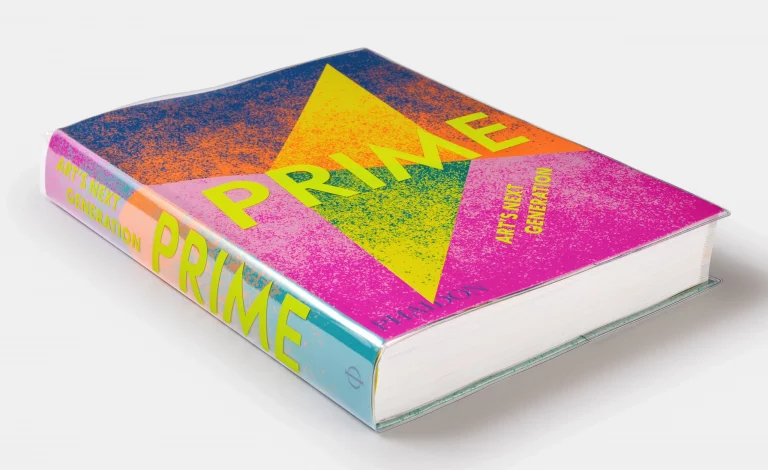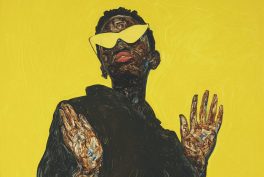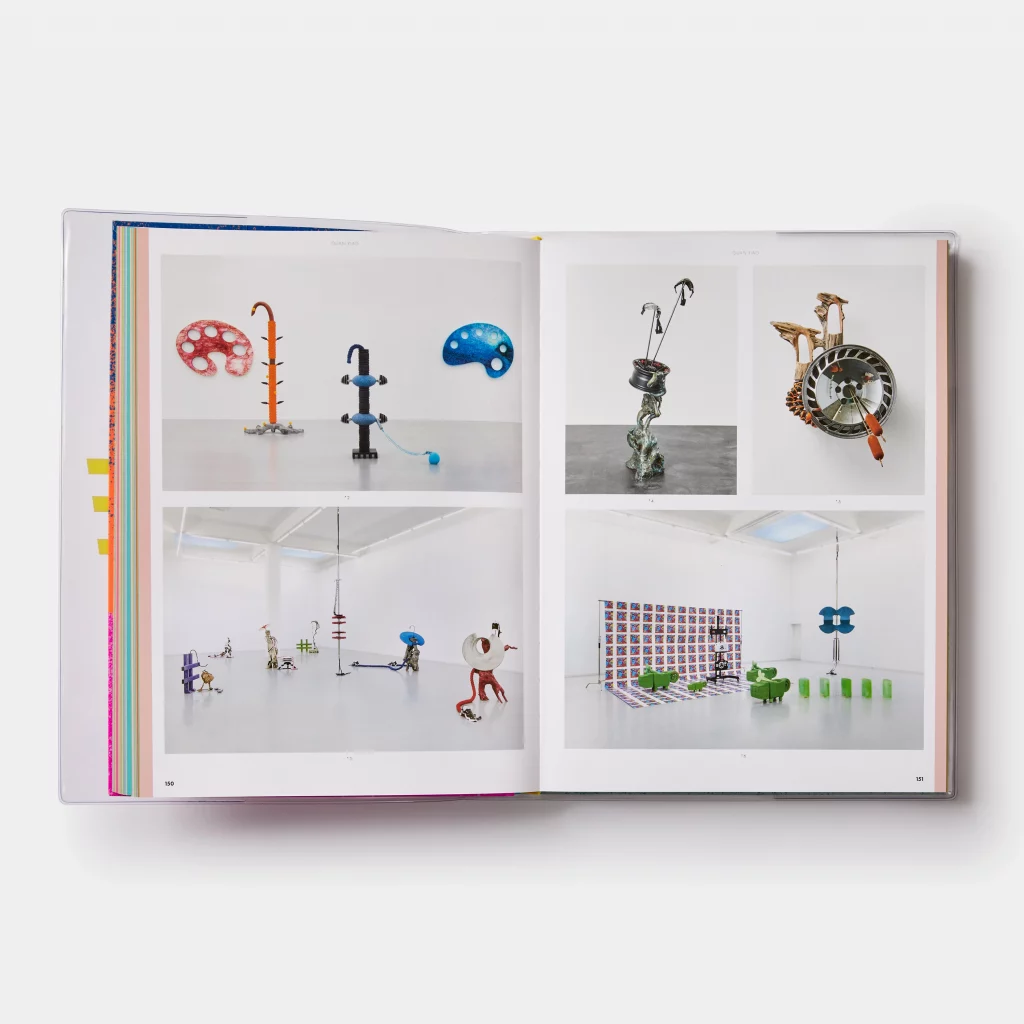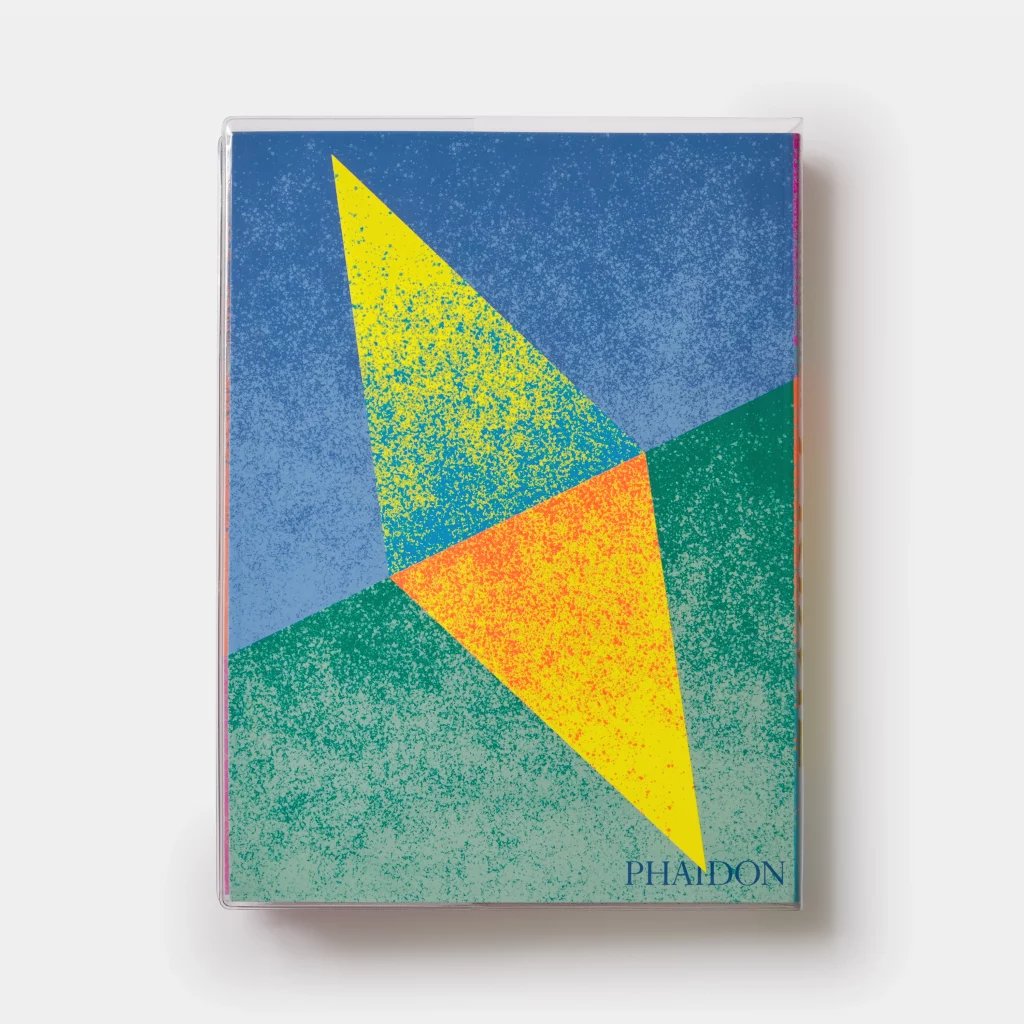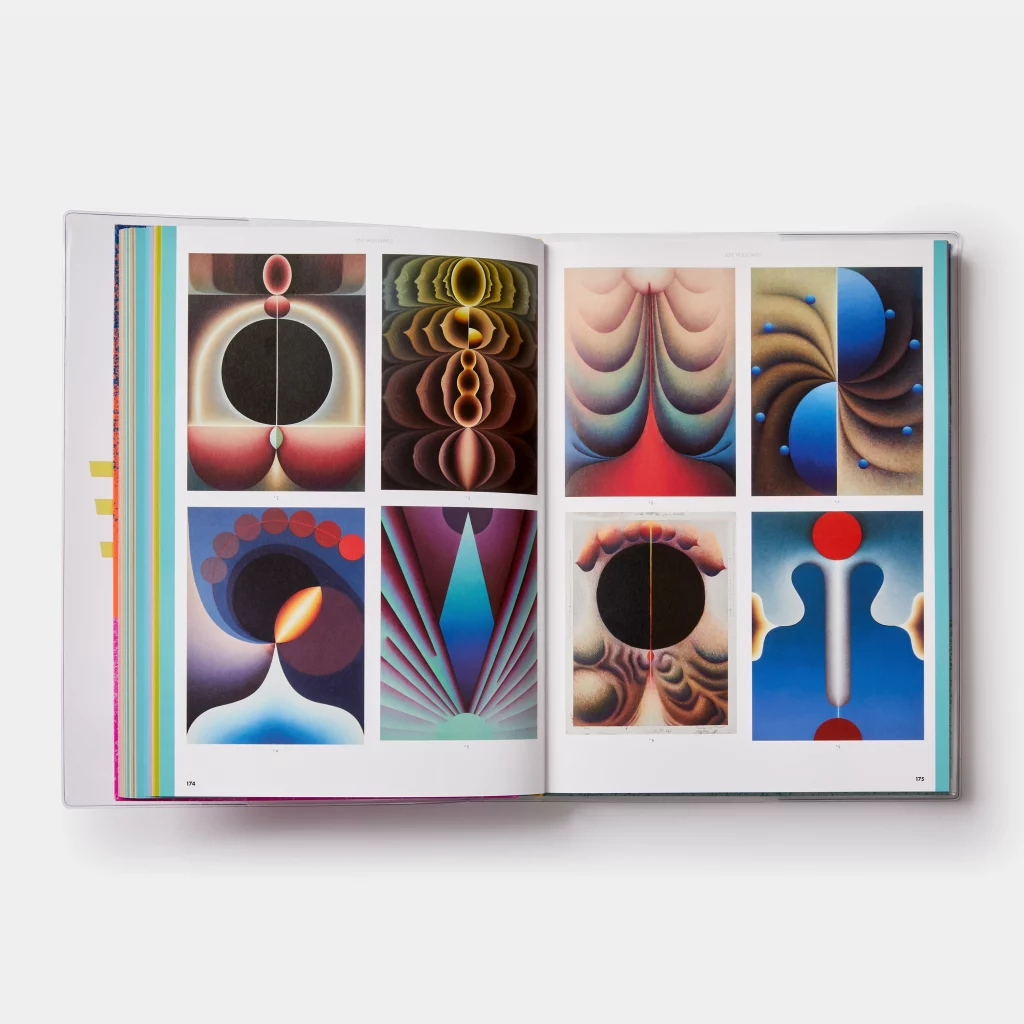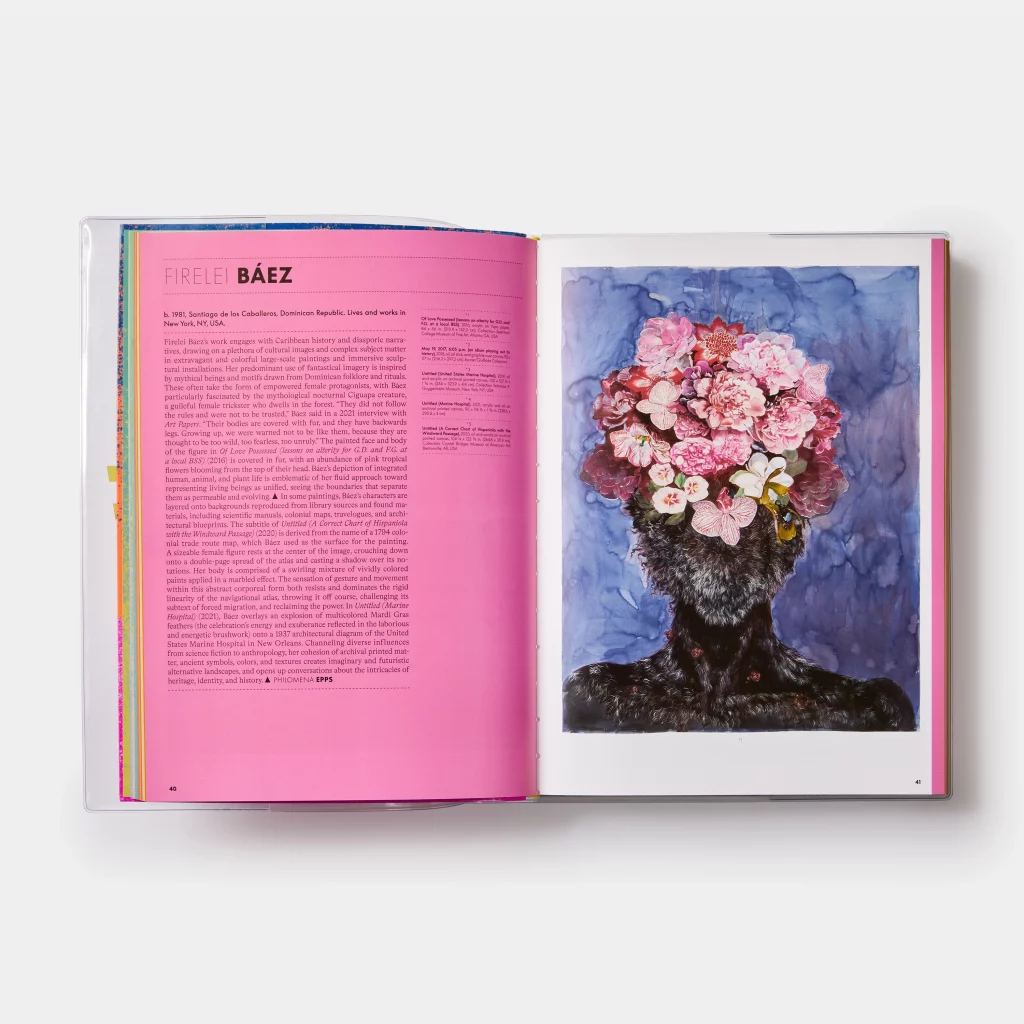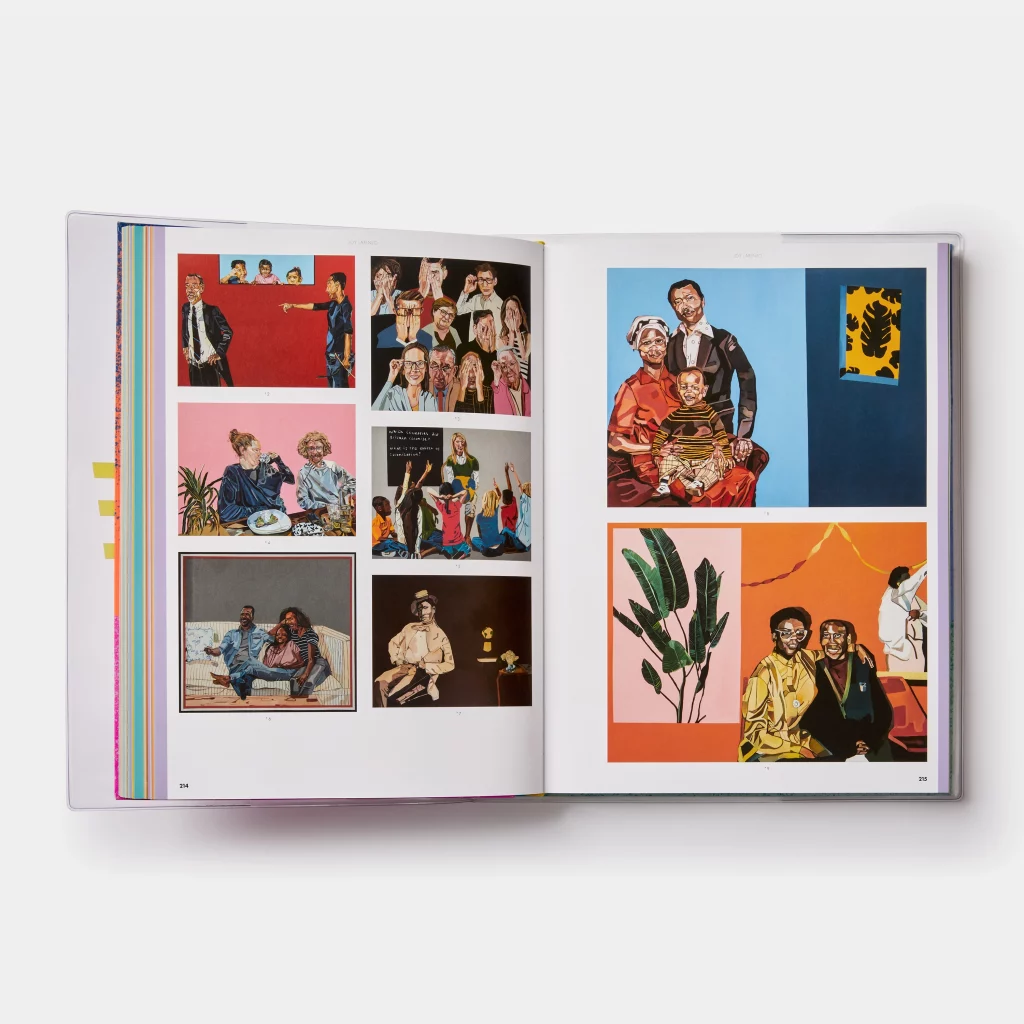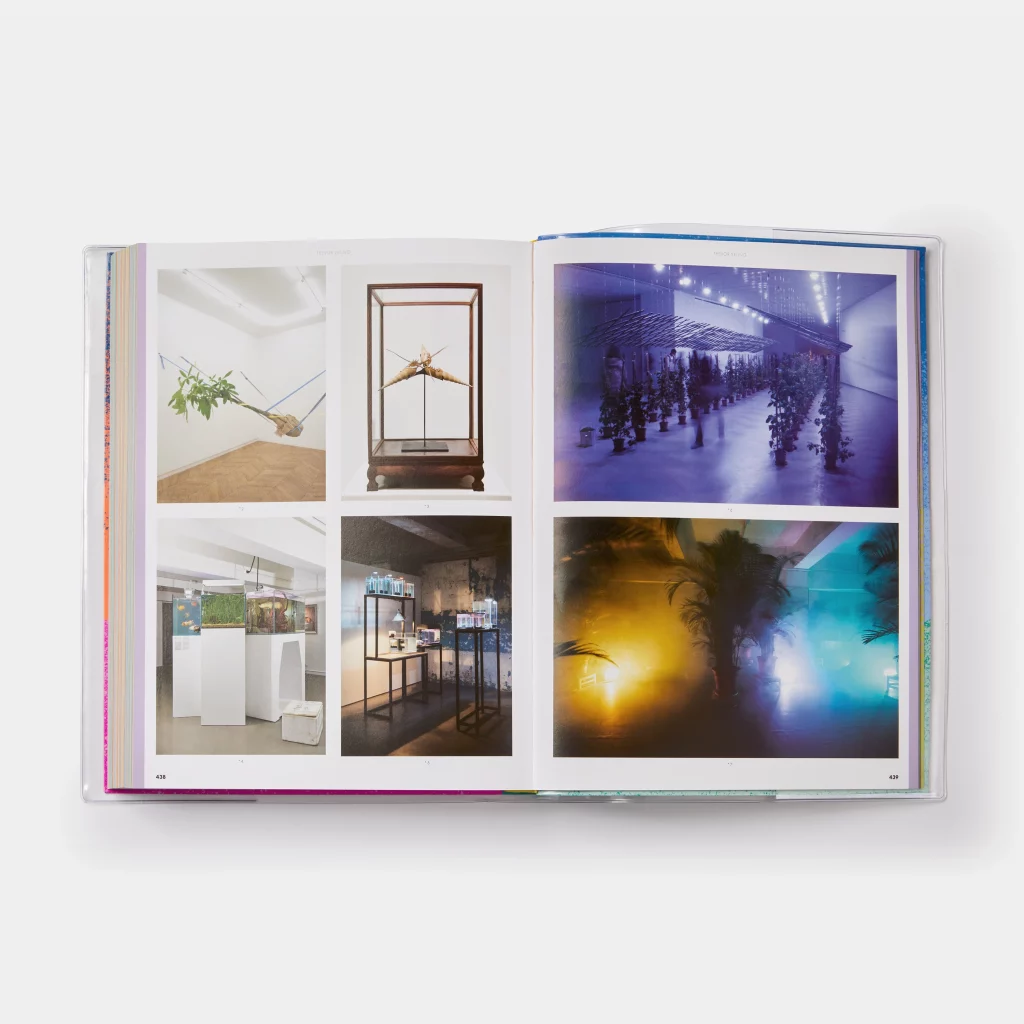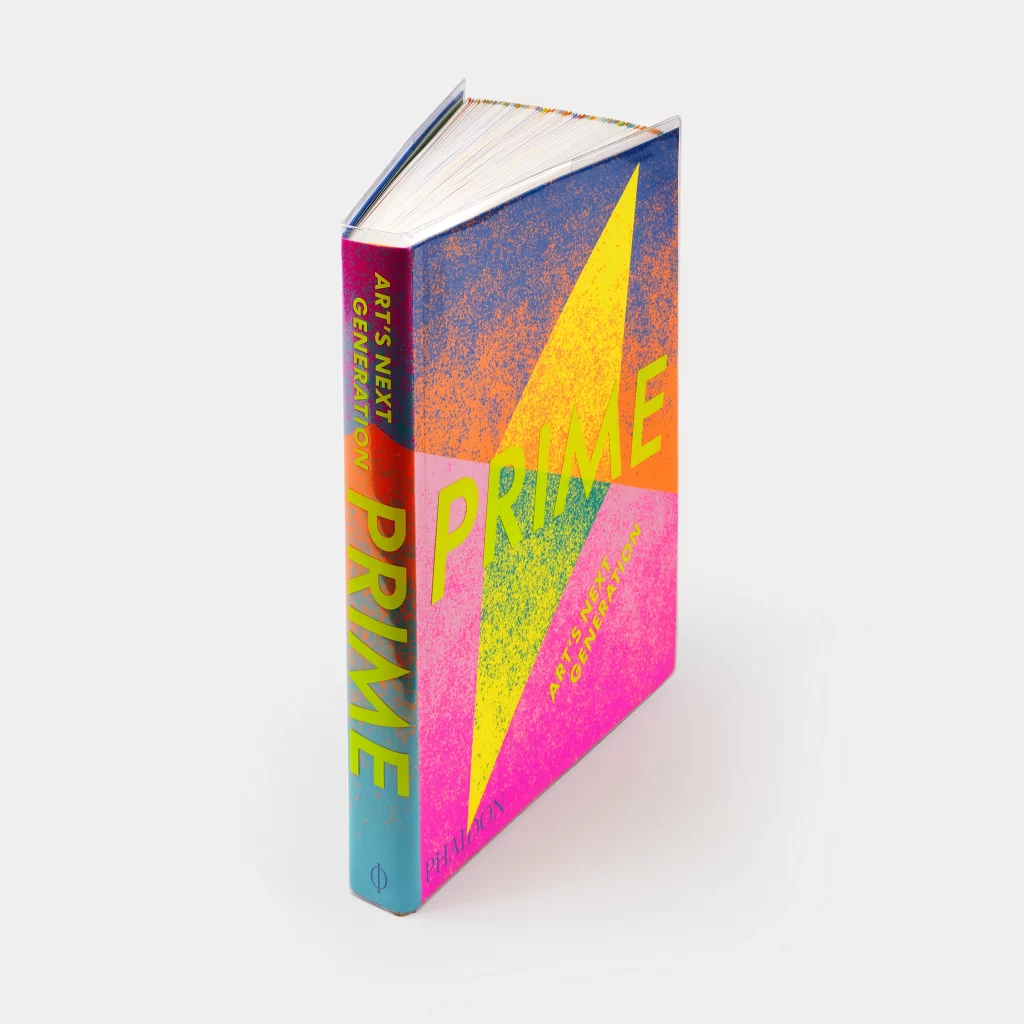The Premise
Prime is a creation from the editors at Phaidon, which is a publisher known for its mighty art tomes. The publishing house regularly puts out books that attempt (whether they succeed is your decision) to present the cutting-edge of the art world. This particular codex features 107 artists born after 1980. Each artist has a page of information followed by pages of image spreads. To top it off, each artist is a selection of an art-world expert (be it a curator, editor, or critic). This means that Prime is not only a listicle of the need-to-know next generation of great artists but also a census of the next incredible art world names. Or at least, that’s the idea.
The Layout
The title punnily alludes to the idea that this is a primer about upcoming artists and art-world top dogs who are currently in their prime. The popping bright colors and sharp angles of the cover are eye-catching, and certainly, highlight the work’s attempt to be cutting-edge. The back cover reminds me of a compass… is Phaidon trying to guide our journey through art? Of course!
At the start of the encyclopedia-style work, there is an index for both the artists featured and the various “nominators and writers,” as well as a preface entitled “What is Prime,” which takes up a single page.
Within the covers, each artist’s introduction is on a light-colored page, with their name in bold at the top, their birth-year and location beneath, and then a very digestible paragraph beneath in sensible font. The remarks about each artist are in first-person from the nominator and nicely examine (in brief) the artist’s practice, with a focus on the artworks and processes.
The Pros and Cons
On the one hand, this is a wonderful publication. It is appealingly designed and easy to navigate. The brief nature of the entries and the simple organization means it acts like an at-home exhibition that you can whizz around and dip in and out of. You can easily discover new works; simply by flicking through the glossy (and weighty) beast, you are bound to find something new to tickle your visual taste buds. Then, if you like, you can read a morsel about the artist and become familiar with new names on the art scene.
On the other hand, for a retail price of £55, this book feels fairly like a glossy version of a shopping catalog, chucked together with a sense of quantity (448 pages!) over quality. There is no overriding discussion, for example, of any commonality between the artists, nor a view on what art’s next generation will be like. You might find it fun for five minutes to look at the pictures but you won’t be drawn in as there is not much depth. A more critical, possibly smaller, selection with more incisive commentaries could achieve this and, of course, the whole premise of Prime is to be a survey. But surely a publisher like Phaidon might be able to produce something slightly more critical and discerning, even in this format?
Although my instinct is to agree with Mark Rappolt, who argues that overall this book is essentially “guff,” an example of an art book that exists simply to keep the production line of contemporary art moving, I am also taken in by what Prime does ultimately – it offers an indulgent selection of numerous new artworks and artists. The sheer magnitude and diversity of the selection are certainly beguiling. So, perhaps a large quantity combined with a high-quality introduction is enough?
It is really up to you to decide whether it is worth the money, however, if you are imagining that this will provide you with deep insights, then I advise you to look elsewhere. A free and much more accessible way to discover contemporary art is simply browsing Daily Art Magazine or getting the Daily Art App! Or, perhaps podcasts might be your thing, and of course, there is always the possibility of visiting some galleries. Nevertheless, if you are drawn in by the promise of Prime, who could blame you? Prime does what it says on the tin and packages itself very prettily (an excellent bookshelf or coffee-table addition simply for the looks).
To get your copy of Prime, Art’s Next Generation by Phaidon Editors, check out the publisher’s website!
